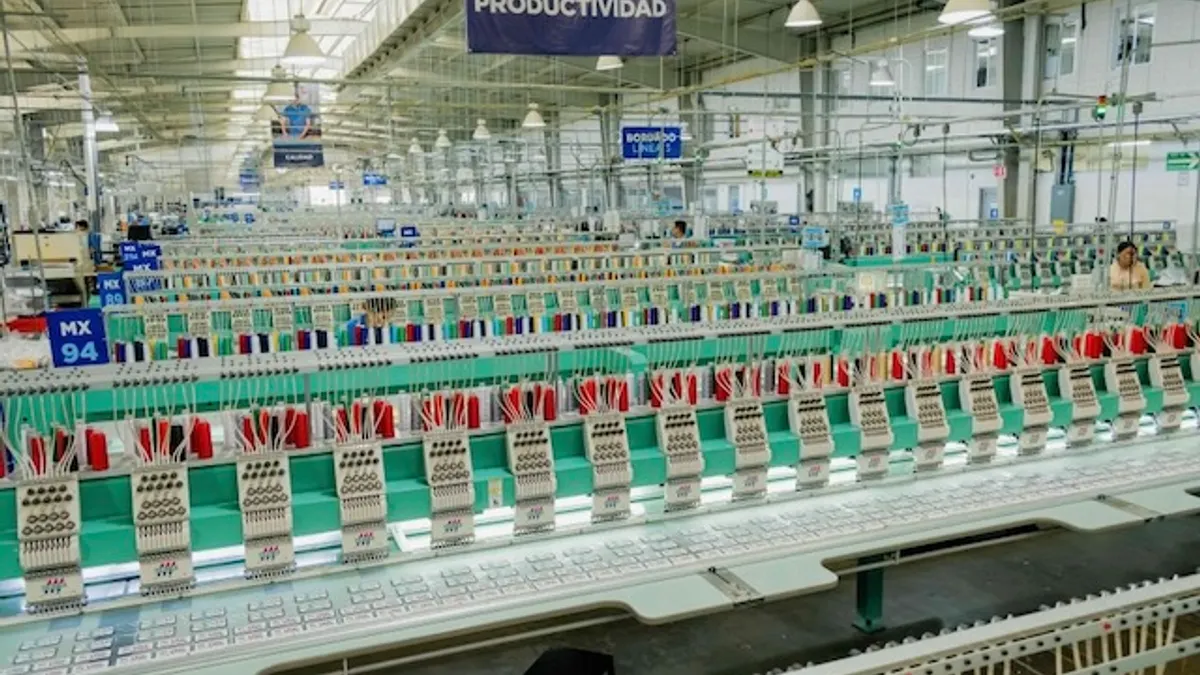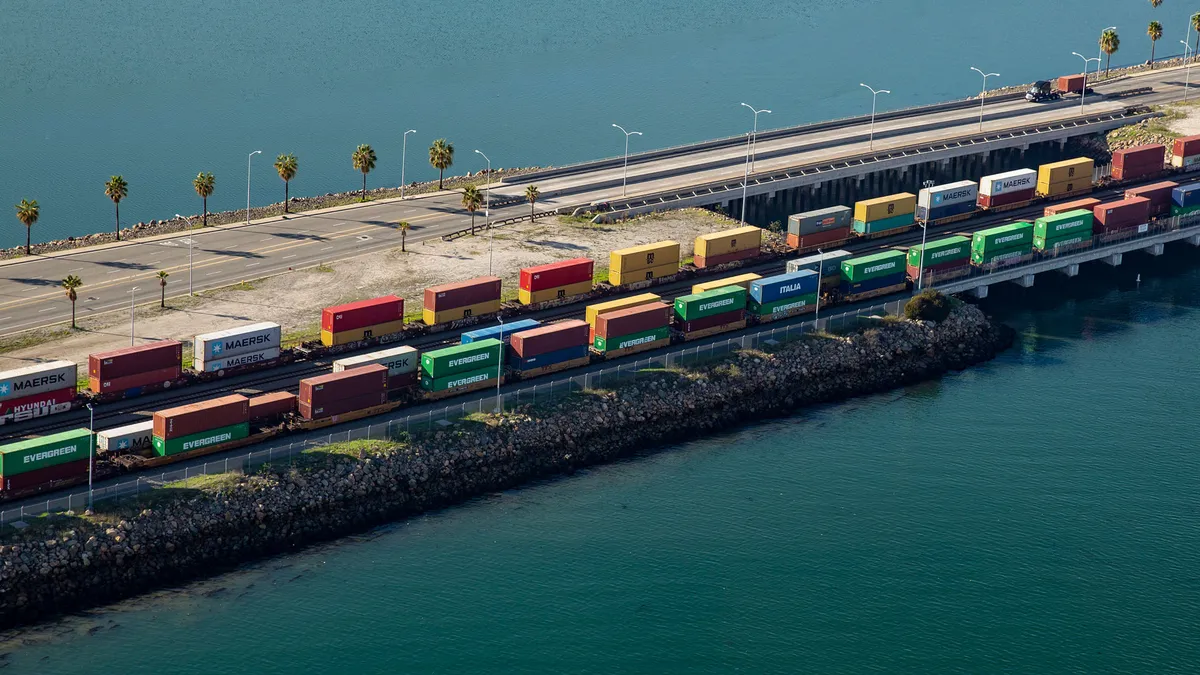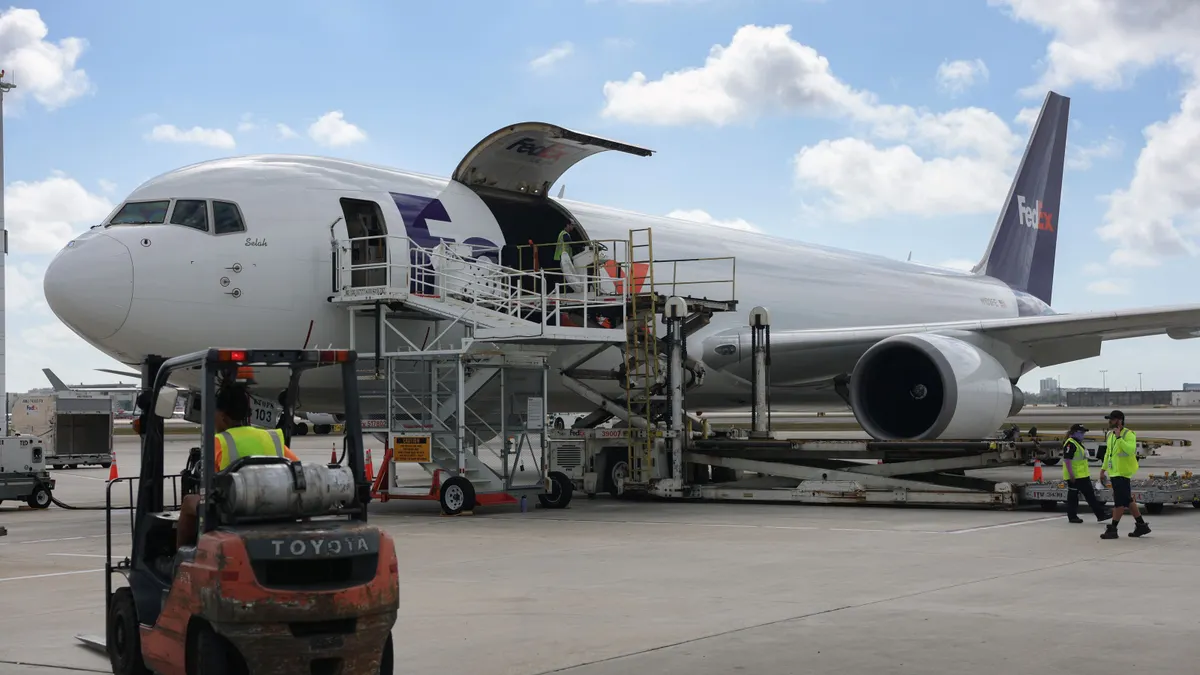Editor's Note: This article is part of a series on changes to supply chains, one year after President Donald Trump's election. Read expert opinions here, and a report card on campaign promises, here.
The heated political rhetoric around the world is driving supply chain risk levels to all-time highs.
In the United States, a bruising presidential campaign followed by a surprising election result was followed by a year full of numbing “breaking news” stories, with both domestic and international implications.
One year after election day, the intent is not to take sides or wax political, but to take a look at some of the business issues – some politically driven – from the last year that have had a direct impact on supply chain professionals.
In many cases, there are far-reaching ramifications that we may not know about for years. But so far, we can reflect on five issues that will remain prevalent to those managing the global supply chain:
NAFTA: The elephant in the room
The North American Free Trade Agreement is currently being renegotiated and there is danger of US withdrawal and collapse of the entire agreement.
Trade between Canada, the United States, and Mexico would be significantly impacted especially jeopardizing well-established supply chains. There is growing political pressure to scrap this agreement as some think it is not in the best interest of the United States to participate. Some feel that NAFTA has moved too many jobs to Mexico and Canada, and out of the US economy. While there has certainly been job shifts because of NAFTA, many of the aspects of this trade agreement has benefited US companies, especially those in agriculture and automotive manufacturing.
A supporter of President Trump or not, those in the supply chain are on the front lines of the political and business decisions made in the Oval Office.

Supply Chain Dive
NAFTA allows for goods to move between trading partners with reduced tariffs. These lower prices are an incentive to do business with suppliers located in countries part of the agreement, causing many companies to make significant investments in manufacturing, and distribution.
Supply chain managers with existing contracts and pricing agreements in place with NAFTA trading partners would be in jeopardy if the agreement dissolves. Changes in logistics, warehousing, distribution, sourcing, regulatory filings and procurement would occur. Manufacturing partnerships would be in jeopardy, and existing, successful supply chains would be impacted as companies scramble to maintain cost advantages by cutting new deals worldwide.
Deregulation: Good for business, or another source of risk?
The Trump administration is actively trying to eliminate or modify regulations they feel are impacting business through high administrative costs and restrictions, unfairly burdening companies and dampening competition.
The targeted regulations are widespread and include financial, technology, health, environmental, transportation, education and labor business segments. Some of this deregulation is already completed, while other regulations are targeted for review and elimination. Not all of the deregulation has been successful, with some implementations delayed or blocked by the courts.
Those in the supply chain need to keep abreast of these changes in regulations. The addition and implementation of federal regulations is typically widespread and impact all members of the supply chain equally.
However, change is less predicable in a deregulatory environment. Once the regulations have been lifted, states, cities and towns and even specific companies might still operate under previous regulatory concepts. That complicates supplier agreements. In some cases, states like California and Massachusetts have doubled down on some environmental regulations, increasing their impact.
While deregulation is pitched to simplify business, it has had the opposite effect in many cases, causing uncertainty and some competitive disadvantages.
Tax reform: A long-term disruptor
Tax reform, a major Trump campaign promise is being fast-tracked in Congress with a hope that it be passed by the end of 2017, providing the President a key legislative win.
A key element of this reform is the reduction of corporate income tax levels from 35% to 20%, hoping to spur economic growth through company expansion, investment and reshoring. In theory, creating a higher demand for workers would result in potentially higher wages for workers. These changes are quite popular with business, as reflected in stock market pricing. However, proposed changes to the individual tax code are still under negotiation so tax reform may still be delayed.
The risk to supply chain managers may be muted in the short term, but may cause capacity and pricing concerns in the longer term.
Some companies may relocate offshore operations to the U.S. to take advantage of the lower tax rates and this may cause some shifts and changes in the supply chain. Higher employee wages and the potential scarcity of workers, given the already low unemployment rate, may also drive purchase prices higher.
That said, the relocation of manufacturing plants and distribution centers are not done overnight, so there will be time to react to potential changes if they occur.
Energy, renewables and climate change policies buck trends
The announced withdrawal of the United States from the Paris Climate Accord, as well as a focus on fossil fuels, less support for renewable energy, and the unraveling of the Environmental Protection Agency, have some worried about the effects of climate change on business.
But, the regulatory environment aside, many cities, states and regions of the country are continuing to press for stronger, not weaker, environmental regulations. Economically, it is becoming far too costly to depend on fossil fuel suppliers as the cost of renewables continues to fall, making them a more reasonable alternative.
Many of these changes are driven by politics and not economics.

Supply Chain Dive
Social responsibility, as well as economics, seems to be driving the supply chain in this area. The move to natural gas as an economical feedstock, the broad adoption of wind and solar, and a move towards a greener supply chain are leading the day. Also, changes in weather patterns, and the addition of frequent supply chain killing superstorms, have supply chain mangers heading in a greener direction no matter the political pressure.
The greatest pressure in this area may be coming from the customer, not the regulatory environment.
A shift in global alliances?
A determined trend towards isolationism and nationalism has created a new arms length approach to our allies and other traditionally friendly nations. Formal alliances, treaties and trade agreements with other countries are under pressure, creating uncertainty around the globe.
But this trend is not just focused on the U.S. Brexit is still causing massive economic uncertainty in the United Kingdom and the European Union. Political tensions in Asia, mainly focused on the Korean Peninsula, are escalating tensions between nations. Independence movements, from Spain to Iraq, also create uncertainty in global markets.
Many of these changes are driven by politics and not economics. These shifting global alliances have created uncertainty, the anathema of those operating in a global supply chain.
Imagine impacts on industrial productivity in South Korea under the threat of nuclear war. Or, the delayed company expansion in the UK, and the uncertain economic conditions in the EU. Just who is loading ships in Barcelona’s ports during the Catalonia push for independence?
The rise of uncertainty
During his campaign, then-candidate Trump touted his business experience as a primary differentiator.
He would come to Washington with a business mind and slice through political gridlock focusing on economic growth benefiting all Americans. The stock market has enjoyed tremendous gains since the election with no end in sight, so it seems the business community in general has embraced some of his decisions and plans.
Yet, there is still significant uncertainty around economic and political issues that are causing sleepless nights for those operating in the supply chain. While this article focused on some high-level business issues that have a supply chain impact, day-to-day politics still seem to take center stage. Continued gridlock in Washington, strict blue- and red-state governance, ongoing investigations and changing political conditions around the world have created a “red flag” risk for supply chain professionals.
A supporter of President Trump or not, those in the supply chain are on the front lines of the political and business decisions made in the Oval Office. Perhaps we need to add “political scientist” to our list of professional attributes.





















